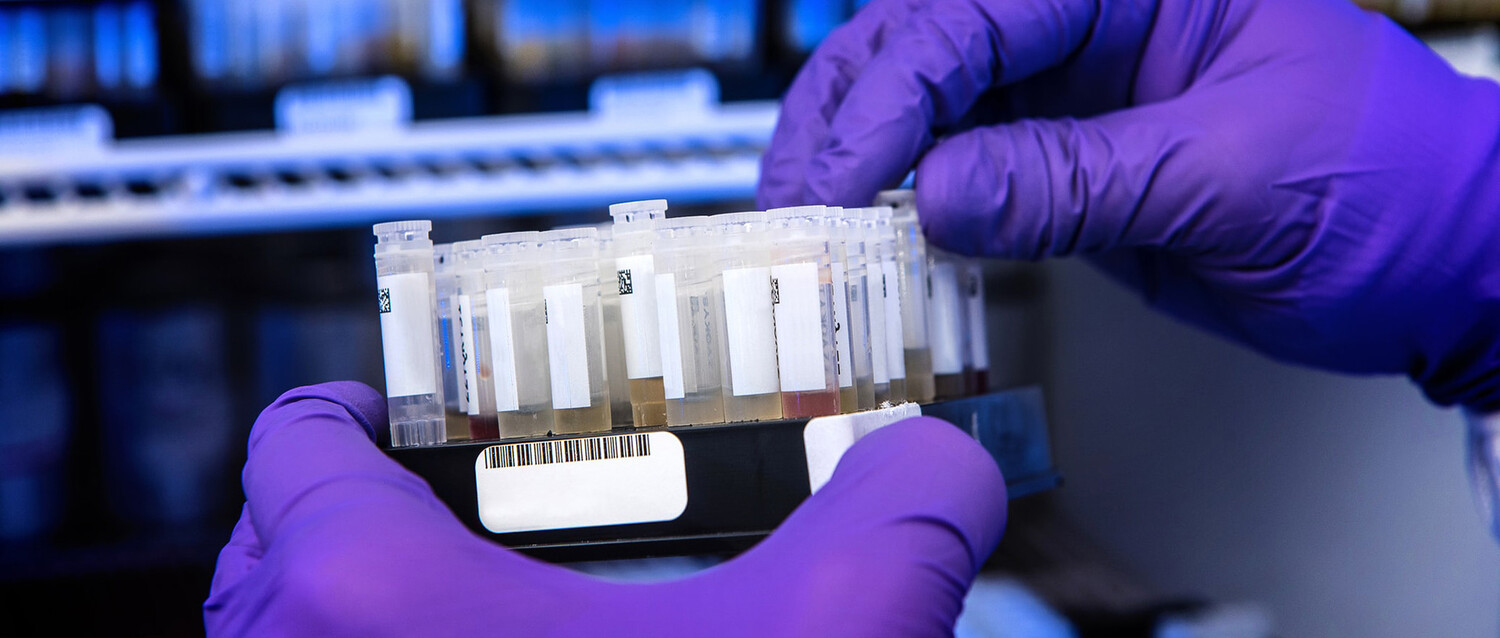If you want to know whether your body has produced enough antibodies after a coronavirus infection or vaccination, you can get an antibody test done. But is this really suitable for measuring your level of protection? It is still unclear what level of antibodies is sufficient to protect against infection. Andreas Bergthaler from the CeMM – Research Center for Molecular Medicine of the Austrian Academy of Sciences (OeAW) – explains which test procedures are currently available and what information they actually provide.
Dr. Bergthaler, what exactly can current antibody tests tell us?
Andreas Bergthaler: Conventional antibody tests can tell us whether we have built up an antibody response against SARS-CoV-2. If you ask the appropriate question, you can also determine whether you have already had a natural infection. This is because the current vaccines all contain only the viral spike protein as an antigen. If, however, antibodies against another virus protein, such as nucleoprotein N, are detected using a so-called ELISA test (enzyme-linked immunosorbent assay), this suggests that you have already gone through a natural infection
THE ELISA FACTOR
Can current antibody tests establish the strength or duration of protection provided by vaccination?
Bergthaler: Yes and no. Most antibody tests measure the level of antibodies that bind to the spike protein of the SARS-CoV-2 virus using an ELISA test. This provides valuable information as to whether antibodies have already been formed in the body.
However, it is much more difficult to determine whether this amount is sufficient to protect against infection. This has to do with the fact that the ELISA test only determines the antibody binding, but not whether the antibodies can actually neutralize the virus.
Our immune response is very complex and, as well as antibodies, there are other mechanisms that play an important role in protecting against the virus.
What else does the strength of the immunization protection depend on?
Bergthaler: The protection in the body also depends on whether, for example, the antibodies get into the respiratory tract and can act there. In addition, our immune response is very complex and, as well as antibodies, there are other mechanisms that play an important role in protecting against the virus, such as CD8 T killer cells. ELISA tests are quick and cheap. However, measurements in special laboratories are required to determine viral neutralization and immune cell activity.
Can measurements in special laboratories reveal more about immunization protection?
Bergthaler: It is currently a central goal in international COVID-19 research to define a so-called correlate of protection. That means a measured variable with a threshold value above which it can be said that you are protected. Antibodies and probably also T cells will play an essential role, but how much and what is to be measured must first be determined. For all those scientifically interested: there is an informative review article by vaccine pioneer Stanley Plotkin from 2010 as well as an article by Florian Krammer, which was published in the journal Nature this summer.
DECIDE ON BOOSTERS ON A CASE-BY-CASE BASIS
Do you need a booster vaccination earlier if you have fewer antibodies?
Bergthaler: This is suggested for people with a known immune deficiency, but otherwise you have to look at it on a case-by-case basis. Due to the lack of a defined correlate of protection, it is difficult to give general recommendations and to define what is actually meant by "too few" antibodies. This is why various vaccination committees internationally are intensively discussing the benefits and timing of booster vaccinations in the general population.
We received a question, via Facebook, about whether you should still be vaccinated if you have formed a high level of antibodies after an infection?
Bergthaler: The National Vaccination Committee recommends that if you have had a PCR-confirmed SARS-CoV-2 infection, you should be vaccinated from four weeks afterwards. A single vaccination is considered sufficient, even if the infection was more than eight months ago.
